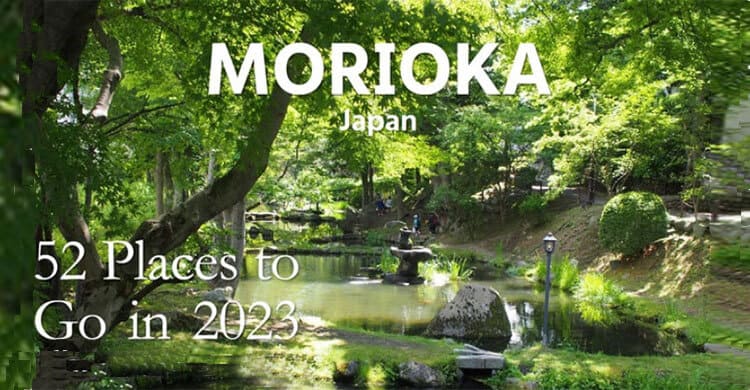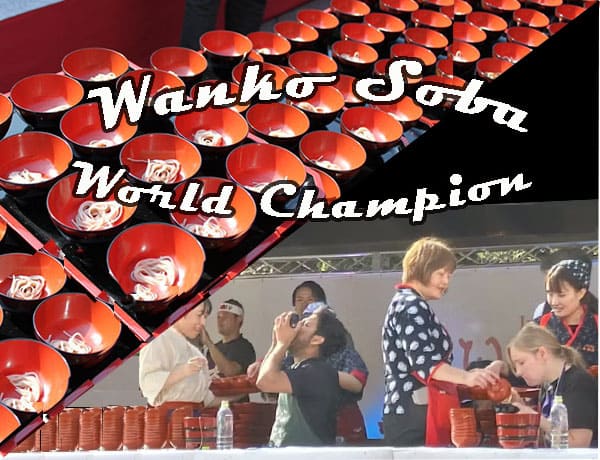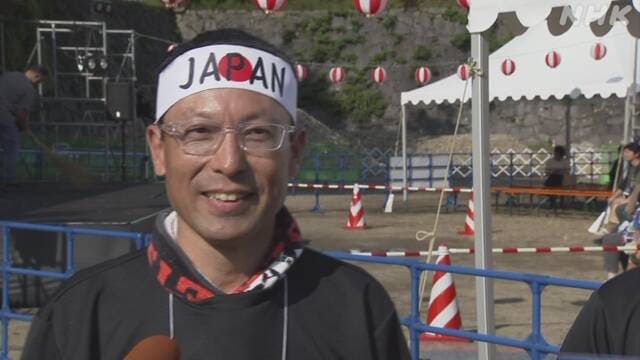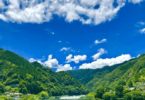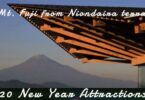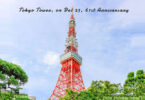Morioka City, historic Castle Town in Iwate Prefecture is about 2 hours and 10 minutes by Tohoku Shinkansen bullet train from Tokyo.

Tohoku bullet train
On January 12, Morioka was selected as one of the “52 Places to Visit in 2023” by the New York Times one of the world’s leading media outlets, as one of the “52 Places to Go in the world in 2023,” second only to London..
Contents
- Why the New York Times named Morioka an “Ideal Travel Destination”: for “A secluded place to enjoy on foot”
- Why he called Morioka as a “Walkable Gem”?
- Morioka, the city where American paper say “should visit”, “A charming city that has been overlooked” that Japanese people don’t know about
- What’s “wanko soba noodles”?
- Morioka’s “Wanko Soba World Championship” Inaugural Event – Number of Empty Bowls Cleared in 2 Minutes
Why the New York Times named Morioka an “Ideal Travel Destination”: for “A secluded place to enjoy on foot”
Morioka city, which is the prefectural office though, it is predicted that the population of about 300,000 in 2000 will decrease to about 270,000 in 2023, the same trend as the population of Japan as a whole.
And it is the not many foreigners visit the city, about 60,000 a year as even the japanese don’t know much about its attractions to the city.
This time, who wrote the article is Mr.Craig Mod who is an American writer and photographer and he has lived in Japan for over 20 years.
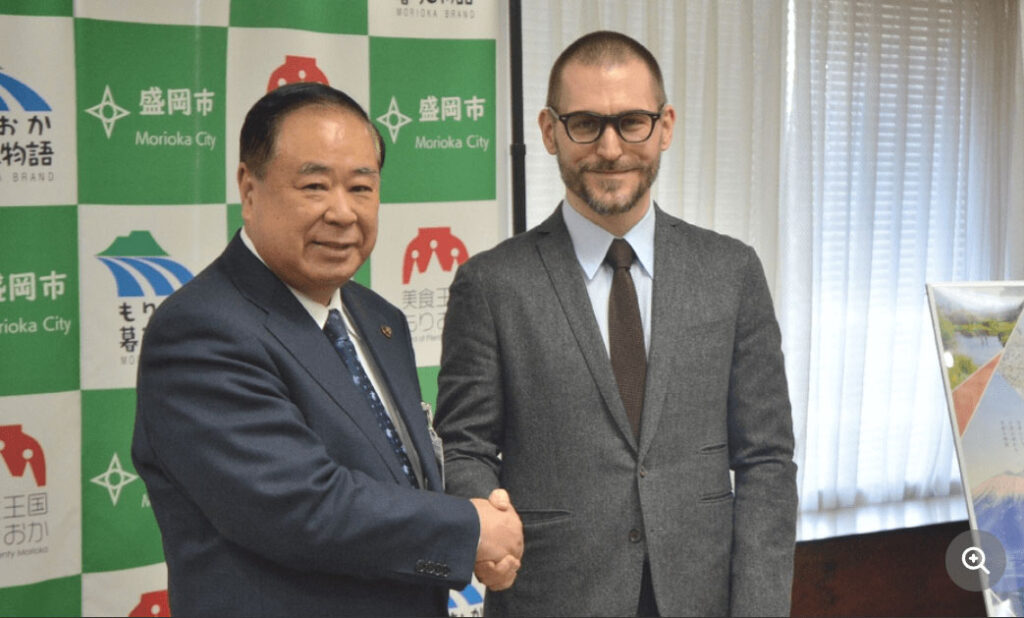
Morioka mayor(left), Mr.Craig Mod(right)
And there are quite a few interesting places in the middle-sized cities like Yamaguchi City, Matsumoto City, and Onomichi City, too.
In October of last year, I received a request from the New York Times, and after making some recommendations, Morioka was featured.”
Why he called Morioka as a “Walkable Gem”?
He responds that “I like the translation ‘unexplored region.’ It’s, shall we say, a city where you can walk around and find good things to do.”
Morioka’s city center is very walkable. The city is full of Taisho era(1912~1926) buildings that combine the architectural beauty of the West and the East.
There are several old inns as well as modern hotels, the ruins of a castle have been turned into a park, which is another attraction.
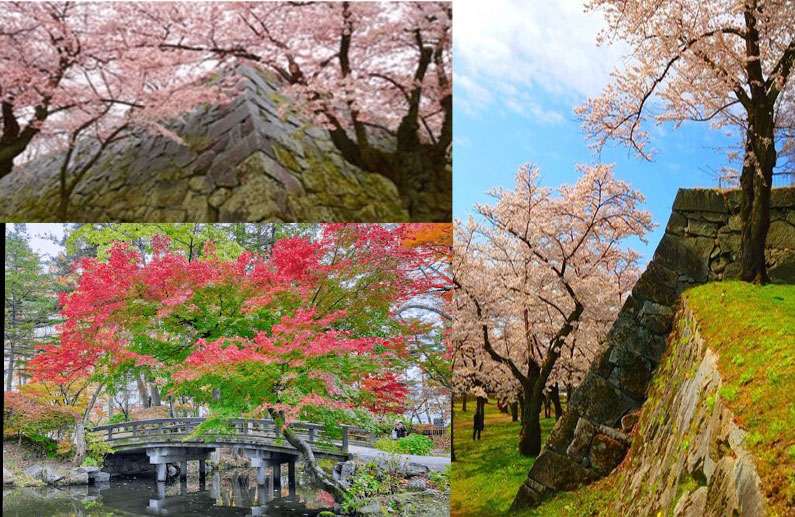
Remains of Castle(stone wall only remains), now the park
The river whose name is Nakatsugawa River that flows through the city is winding that flows through Morioka City and enters the Kitakami River which is the largest river in the Tohoku region and 4th in all of Japan.
The Nakatsugawa River is where you can catch sweetfish in summer, salmon in autumn, and swans in winter.
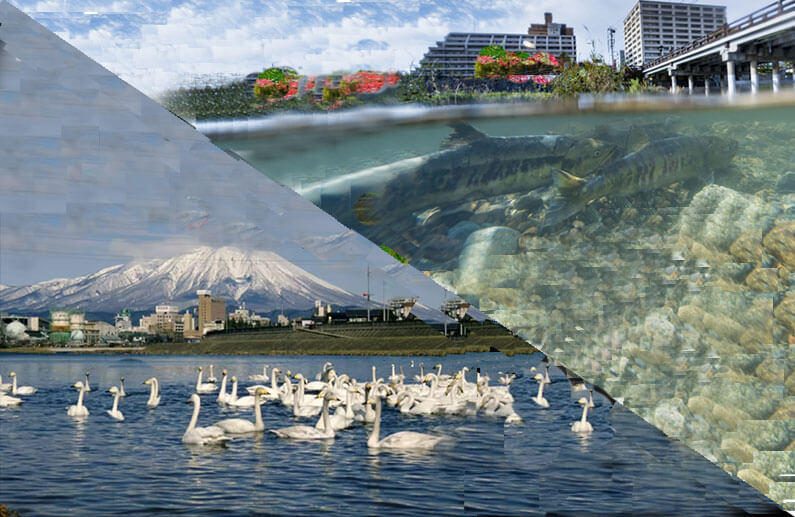
Nakatsugawa river
A promenade has been built along the riverbed in the center of the city, where you can enjoy the seasonal changes of the river up close and personal.
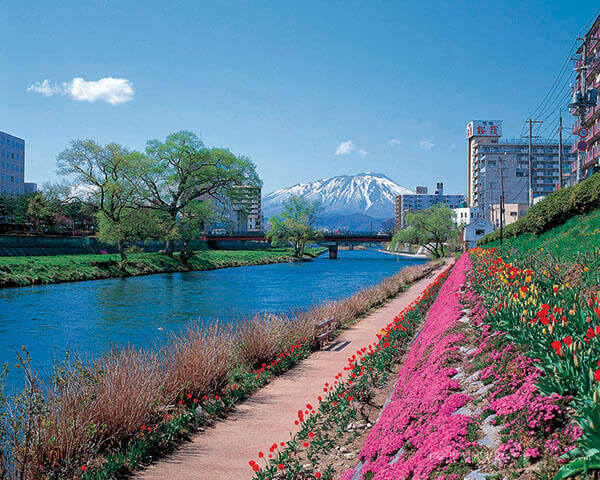
The site also features a coffee shop that serves coffee made with a vintage German roasting machine, a jazz cafe that has been in business for over 40 years as follows,
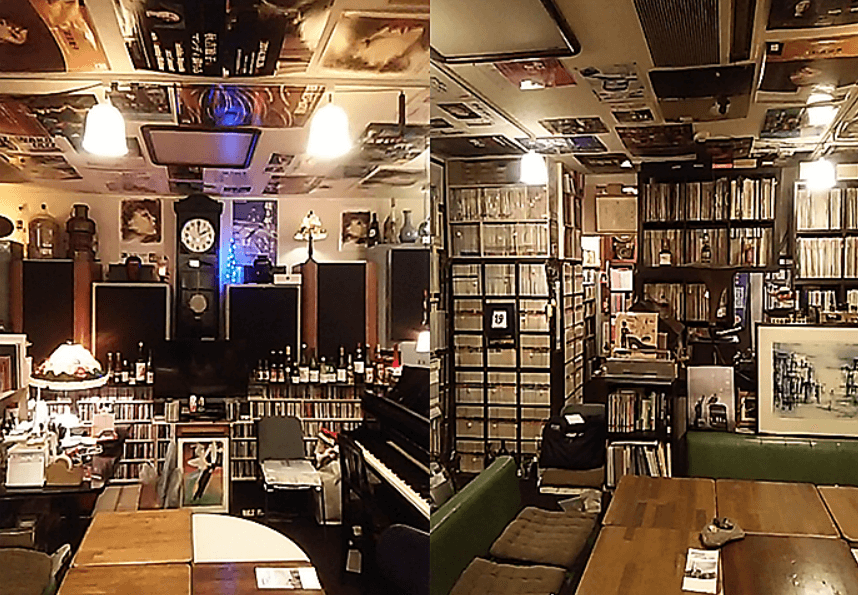
and a bookstore with a collection of classic art books, and wanko soba noodles(There will be a short explanation later).
Morioka, the city where American paper say “should visit”, “A charming city that has been overlooked” that Japanese people don’t know about
It’s a short bullet train ride from Tokyo, a walkable city without the crowds.”
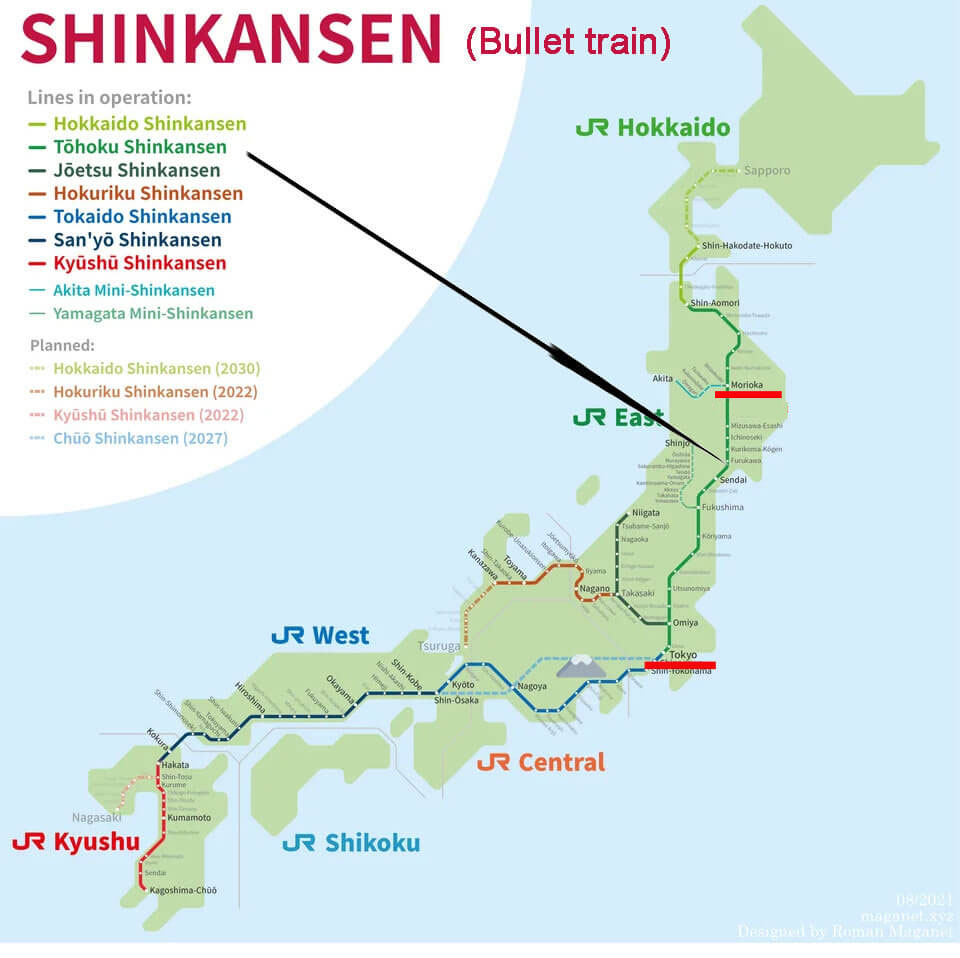
When he returned to Morioka from New York in 2003, he was sometimes discouraged by the gap between the glamorous, entertainment-filled New York and the cozy, quiet Morioka.
However, as he lived in Morioka, he began to feel that “the moderate scale of Morioka, where you can enjoy life on foot, is attractive only to mature adults.
Morioka’s “compact city” concept has been well-received, and the city has come to its senses.
In 2021, Morioka was the first city in Japan where the value of this concept was discovered after walking around regional cities across the country.
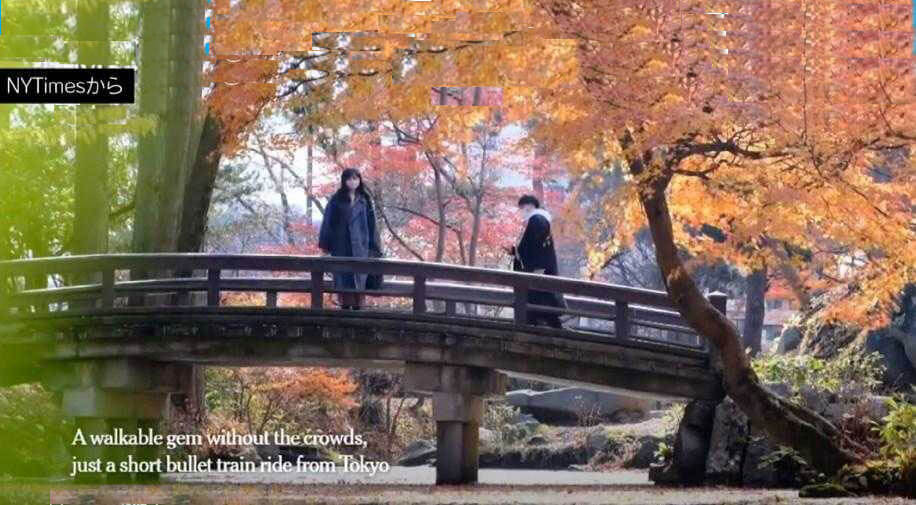
What’s “wanko soba noodles”?
Morioka’s wanko soba is considered one of the three best soba in Japan, along with Togakushi soba in Nagano Prefecture and Izumo soba in Shimane Prefecture.
The history of wanko soba dates back to about 400 years ago, when a feudal lord of the time stopped by on his way to Edo (Tokyo) and asked for a meal.
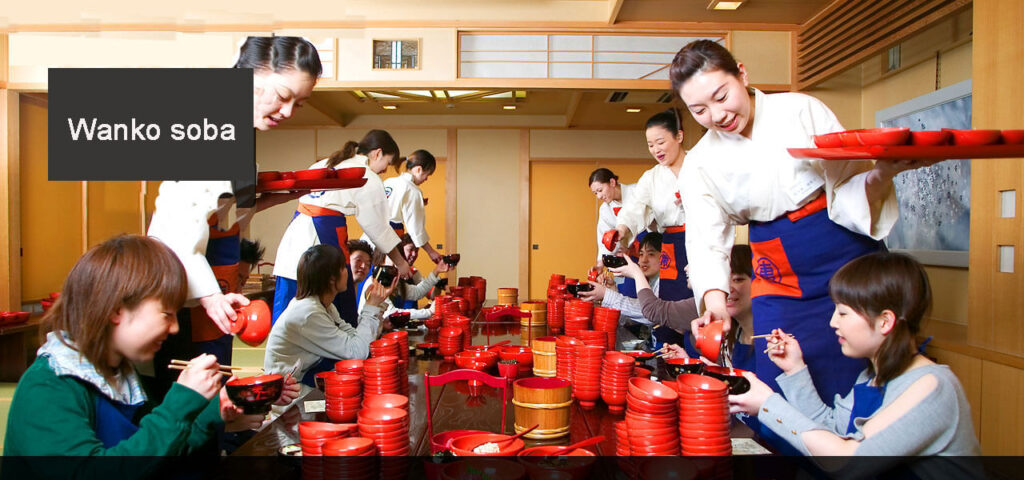
The owner of the buckwheat noodle shop thought it would be rude to serve him a bowl of soba the same as a citizen’s, so he served the soba in a lacquered bowl with delicacies from the mountains and the sea.
Then he timidly served a bite of soba noodles, the lord repeatedly took more bites of the soba, saying it was delicious.
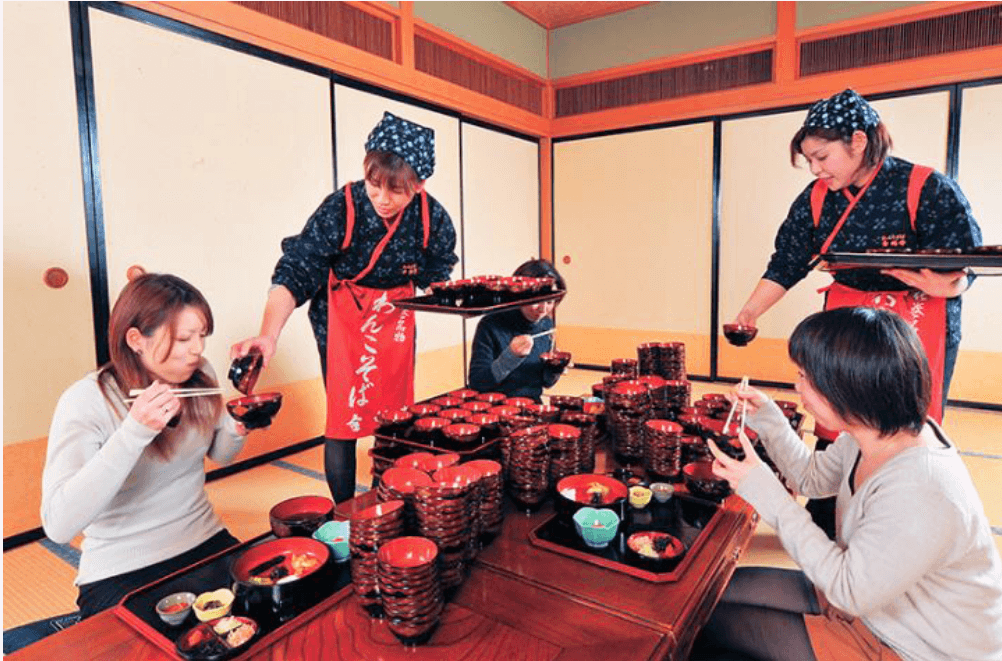
◆Japan Ranked No. 1 among “Countries to Visit” Why would you want to visit Japan even if you wear a mask?
Japan continues to be the Top Most Popular Overseas Travel Destination from Last Year.
The Development Bank of Japan and the Japan Travel Bureau conducted an online survey on the intentions of foreign visitors to Japan from Asia, Europe, USA, and Australia.
The survey, which polled 6,307 residents of 12 countries and regions, chose up to 31 options for the country or region they would like to visit next. This percentage is far ahead of the second place and below.
The top reason given was “safe” at 85%. Other top reasons given were “I want to eat Japanese food,” “I want to shop,” and “There are accommodations I want to stay at,” all of which were given by almost the same number of respondents at over 80%, again ranking at the top of the world list.
Finally, please enjoy the short video!
Thanks for watching
Morioka’s “Wanko Soba World Championship” Inaugural Event – Number of Empty Bowls Cleared in 2 Minutes
The “Wanko Soba World Championship” was held on October 1st, 2023 for the first time in Morioka City with the aim of promoting Iwate’s food culture, particularly the specialty “Wanko Soba,” to both domestic and international audiences.
This event, which took place on January 1st, was organized by Iwate Prefecture in response to Morioka City being featured as one of the “must-visit travel destinations” in a prominent American newspaper. It was held at the Morioka Castle Ruins Park in Morioka City.
The inaugural championship saw the participation of approximately 80 people from eight countries and regions, including China, Taiwan, Nepal, and the United States, in addition to Japan. Participants were divided into two categories: elementary school children and adults, competing to see how many bowls they could empty in 2 minutes.
Mr. Hiromasa Sato, who won the competition by emptying 91 bowls, said, “I’m glad I could achieve good results as a representative of Japan. I was able to enjoy the soba until the end. Timing is crucial,” proudly speaking to the world.
Reiko Kitatochi, the International Tourism Division Chief of Iwate Prefecture’s Tourism and Promotion Office, stated, “We are pleased that the championship generated so much excitement. We hope to leverage ‘Wanko Soba’ as one of Iwate’s attractions to attract tourists.”

